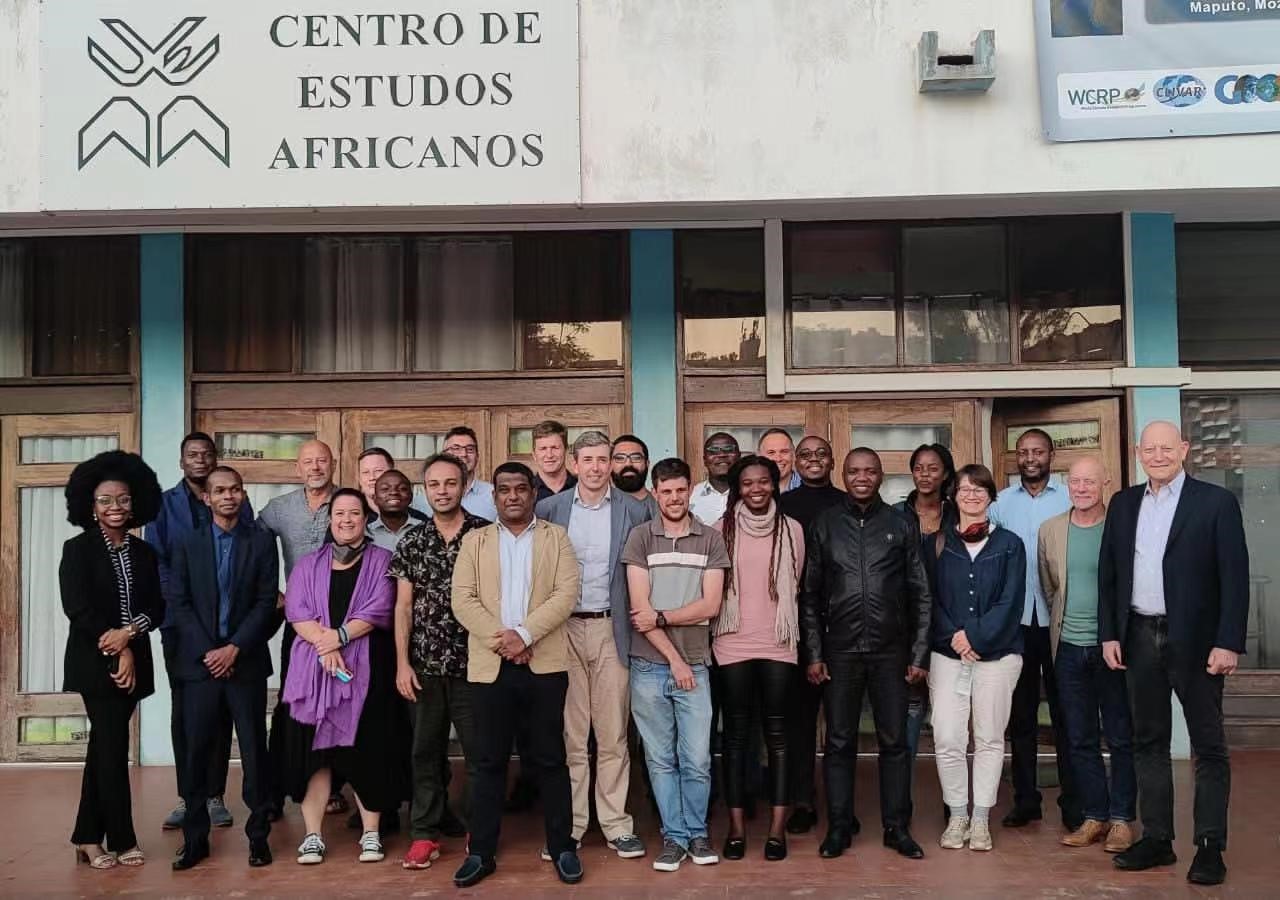Western Indian Ocean Training Workshop Organized Successfully in A Hybrid Format

The Regional Training Workshop on Observing the Coastal and Marginal Seas in the Western Indian Ocean (WIO) was successfully organized from 7 to 9 June 2022, in a hybrid format, with 25 in-person participants in Maputo, Mozambique and over 110 attendees online. During the 3-day workshop, participants listened to the voice from WIO rim countries about their observational needs and gaps, in particular in the coastal and marginal seas; understood the best practices on the fit-to-purpose and easy-to-use observation instruments and innovative platforms; found out where to find the data and how to use the data to solve the societal needs, and discussed how to leverage support from national and international opportunities.
In the opening session of the workshop, Dr. Jorge Mafuca (Director of the InOM), Dr. Toste Tanhua (GOOS co-chair), Dr. Sophie Seeyave (POGO CEO), Ms. Jing Li on behalf of Dr. Jose Santos, Executive Director of the International CLIVAR Project Office (ICPO) made opening remarks.
The 1st session of the workshop provided an overview of the WIO observing system, by hearing the updates from various perspectives, i.e. updates on existing observation systems from WIO rim countries (Kenya, Tanzania, Mozambique, South Africa) and Kuwait; Ocean Decade Africa Roadmap introduced by Dr. Mika Odido from IOC Africa, with emphasis on ocean observation needs and gaps; as well as the Annual Indian Ocean Transect (AIOT) by the Global Oceans, an non-profit organization based in the US.
Session 2 was on the observation instruments and platforms, with a focus on the cost-effective and fit-to-purpose observation instruments for the WIO countries. Dr. Tommy Bornman from SAEON, South Africa and Dr. Gregory Cowie from SIBER provided an overview of the coastal and marginal sea observation instruments, by highlighting the necessity, importance and critical criteria for coastal observations, and introducing the ‘CoLaB: Coastal Lab in a Box’. Dr. Nadia Pinardi from the CoastPredict, a programme endorsed by the UN Ocean Decade, highlighted the game changing for science paradigms for more systemic, holistic and convergent sciences, and the requirements and feedbacks of the global ocean observing system with the expansion to global coastal oceans. She introduced various examples of routine products from CMCC global model data and reanalyses for climate monitoring, which allow for new scientific understanding and benefit to society. She also emphasized the necessary for observation system to receive requirement from prediction models, and the integration with satellite data and new methodologies (e.g. machine learning), which are key for global coastal observations. The subsequent talks were specifically focusing on marine robotics, Argo floats, satellite observations, and the best practices on data standard and quality control. A field trip to the Marine Robotics Unit (MRU) of the Nelson Mandela University was arranged for all onsite participants on day 2.
Day 3 of the workshop focused on two topics. One was on data access, analysis and management, with hands-on experiences on data processing, cleaning, validation, archiving and sharing from South Africa, Mozambique and India being introduced. The other was focused on linking observations with societal needs, with introducing the examples of using ocean observation data for ocean sciences, blue economy and assessing the climate impacts and getting the message across to policy makers. A panel discussion on how to leverage support from national government and international community for sustained observation in WIO were participated by panelists from various partners, across government agencies, non-profit organisation and platform with voluntary contributions. It was then followed by a discussion on how the WIO countries can work together with international community to contribute and benefit from the enhanced ocean observations in the WIO.
Participants shared their feedbacks and their appreciations to the organisers by the end of the workshop. The report for the workshop is available here.











Add new comment